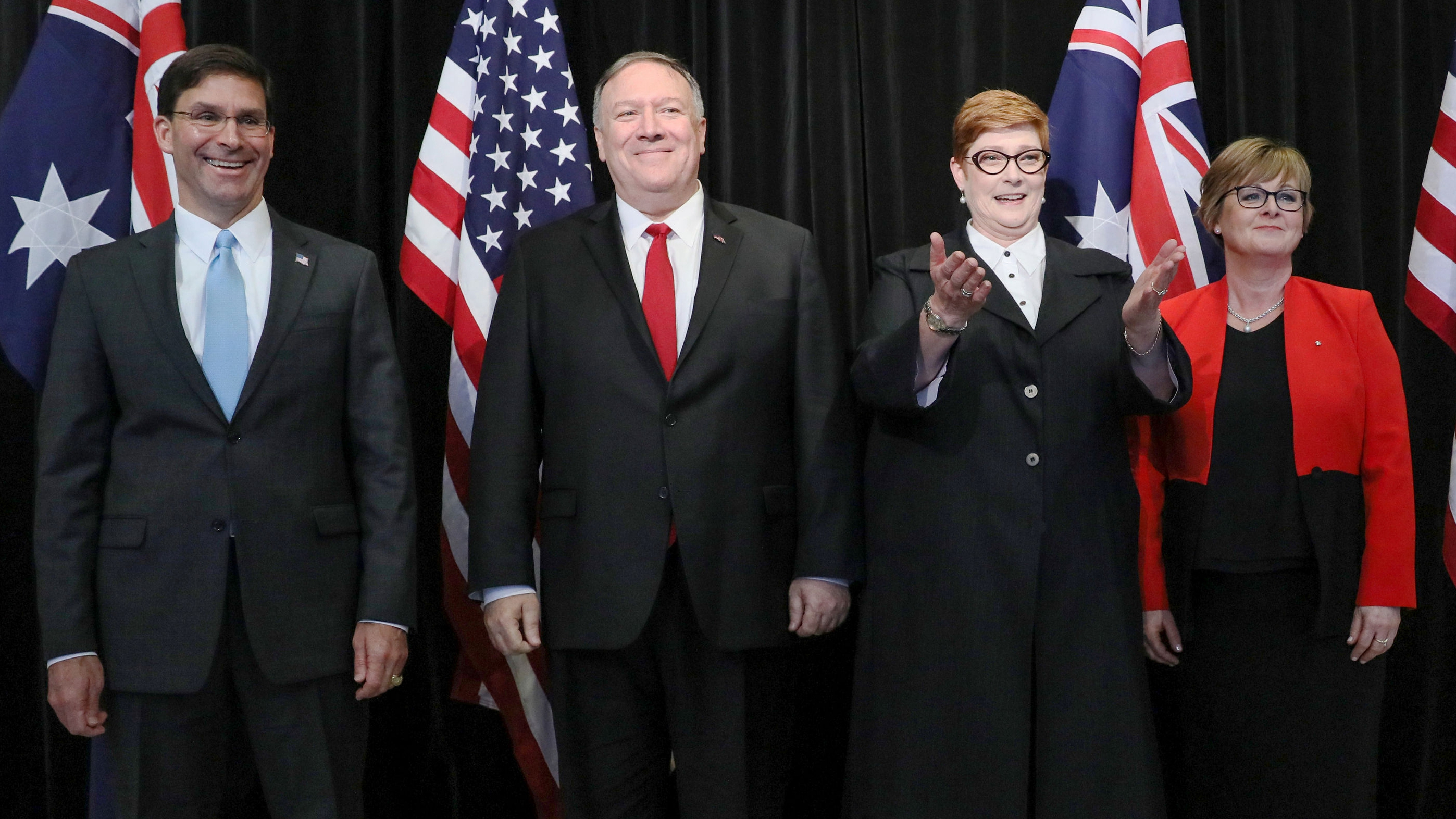

U.S. Secretary of State Mike Pompeo and Defense Secretary Mike Esper are in Australia to discuss defense ties with Prime Minister Scott Morrison and key members of his government.
What's happening?
The Australia-United States defense and foreign ministers' meeting is an annual event, but the gathering in Sydney has particular importance this year because of escalating tension in areas of common concern, and the U.S. desire to strengthen its role in the region.
Pompeo and Esper will hold talks with Australian Foreign Minister Marise Payne and Defense Minister Linda Reynolds for the 34th AUSMIN meeting on Sunday, after discussions with Morrison on Saturday. The Australian prime minister is expected to meet President Donald Trump at the White House in September.
Possible Australian participation in a U.S.-led effort to marshal ships in the Strait of Hormuz, recent missile tests by the Democratic People's Republic of Korea (DPRK) and Washington's decision to abandon the Intermediate-range Nuclear Forces (INF) Treaty are all expected to be on the agenda, as well as China's role in the Pacific region and military-to-military cooperation.
Why does it matter?
Australia and the U.S. are long-term strategic allies, and the Washington is keen to reinforce its position in the Pacific region – the talks are likely to cover increased military ties between the countries.
The U.S. is already preparing to increase its military footprint in Australia, with a plan to spend 211.5 million U.S. dollars on naval construction in Darwin. There are currently 2,500 U.S. marines deployed for training at a base in the Northern Territory capital as part of "Force Posture Initiatives," agreements reached in 2011 to enhance bilateral defense relations.
The meeting has also piqued particular interest this year because it comes in the wake of the expiration of the INF treaty, with Esper saying on Friday that he aims to deploy an intermediate range conventional missile in the Pacific region within months.
The new defense secretary, who will visit New Zealand, Japan, Mongolia and South Korea, before returning to Washington, refused to discuss which countries the missiles could be deployed to. He said he had chosen the itinerary "to affirm our commitment to the region, to reassure our allies and our partners."
President Donald Trump has indicated he wants to seal a new arms deal reducing all nuclear forces that includes China as well as Russia. China's new ambassador to the United Nations, Zhang Jun, has expressed doubts about joining the U.S. and Russia in a nuclear deal.
Meanwhile, strains have emerged in recent weeks over Washington's strategy towards Iran.
The U.S. is attempting to put together a coalition to protect shipping in the Persian Gulf amid tensions with Iran, but Australian Finance Minister Mathias Cormann said this week that no decision had been made on whether his country would join the effort. European countries have previously said they would not participate in a U.S.-led coalition.

Copyright © 2018 CGTN. Beijing ICP prepared NO.16065310-3
Copyright © 2018 CGTN. Beijing ICP prepared NO.16065310-3